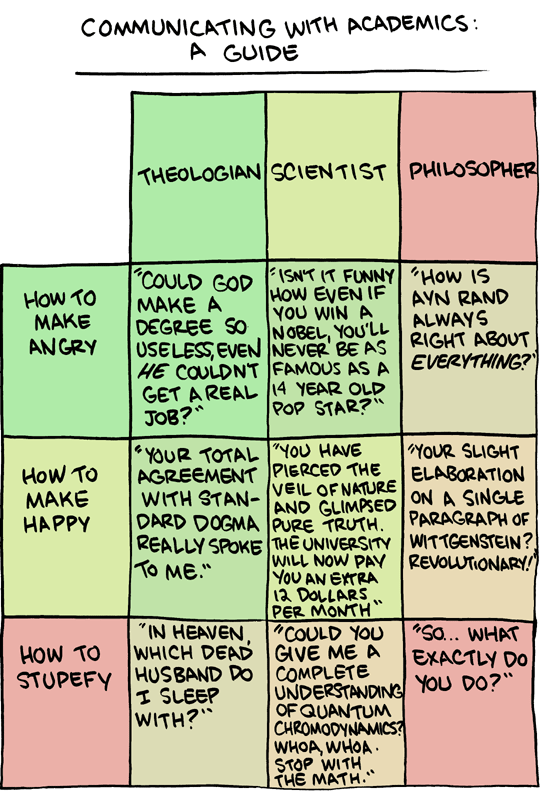As part of my involvement with political philosophy, I have come to read two tracts by Rousseau. One is "Discourse on Inequality" and the other is "Social Contract." My understanding of Rousseau, on purely historical terms, was that he was a major figure not only of the Enlightenment, but also of the formation of modern liberal democracy. But after reading his two major works on politics, I am dumbfounded as to how this can be achieved. My own reading tells me that he is very disjointed, tangential, and confuses himself as much as the reader. It's nearly impossible to come to any firm conclusions reading anything of his tracts, despite their titles. Throughout them, he often contradicts himself. He seems to be neither an advocate for democracy nor equality, and about the only conclusion that I can make firmly is that he abhors monarchies. I leveled my criticism to a friend and colleague of mine who is highly interested and versed in philosophy, and he gave me a commentary book, called "Rousseau: A Free Community of Equals." I am loathe to read commentaries on anything other than established sciences, as I prefer to form my own opinions from the facts, and I am reaching the edge of patience with this one. In this commentary, it seems the only way to make sense of Rousseau is to gather as many of his works as possible and make inferences from the whole. Even there, this book is wearing thin on me because it stretches the bounds of inference. I have to wonder where the author's opinion ends and Rousseau's actual words begin.
My only conclusion to all this is that Rousseau was not a very eloquent or rational philosopher. I don't know why he is so praised, any more than I know why Plato, with whom I have my own qualms, is so praised.
What's your take on the matter?
Well, I can't speak to your specific reading of Rousseau. Like most philosophy departments, mine had very little concern with reading the works of great dead philosophers, since contemporary defenses of various positions tend to be both better and clearer.
I think it would be a great idea to read commentaries on Rousseau. Even better, you might wish to figure out a specific view that you tend to attribute to Rousseau, and then try to figure out its "modern incarnation". From there, read the best defense of the modern incarnation. For example, you might be interested in social contract theory. If so, I think you'd do better to read, say,
Anarchy, State, and Utopia by Robert Nozick, than to read Rousseau.
If your main goal is to understand what great dead philosophers thought rather than critically examining the best descendents of views that they had, though, you'll want to read commentaries, and you'll need to read those philosophers in their original language. But that's something Plotinus would know WAY more than me about, since he does history.
Fifty, do you have your degree now? How are you staying up to date on the field?
Yes. I am staying up to date on the field by keeping up with the happenings on various very good philosophy blogs, and perusing journals mostly.
Two philosophy student friends of mine had a brief argument about if you could make an argument for free will without resorting to a supernatural explanation. So I am putting the question to you, can you make a convincing argument for the existence of free will without resorting to a supernatural explanation?
I think you can. I like the view called "semicompatibalism". Basically, you start by acknowledging the soundness of arguments that the past + the laws of nature determine a unique future (or at least a unique future in decision-relevant senses, to account for quantum weirdness). But you say that that fact does not entail that we are not free. You then offer an account of what it means to say an action is done freely. The account basically states that an action is done freely if its causal history "flows through" a person in the right sort of way (a way involving the person's intentions, desires, etc.). I like that sort of view, and it of course doesn't involve the supernatural. In fact, I tend to think that invoking the supernatural, or assuming some sort of large scale indeterminism in the world, does nothing to help arguments for free will! In my opinion its compatibalism or nothing.
If you're into Free Will, by the way, "Four Views on Free Will", published by Blackwell, is an excellent read. It contains defenses by modern philosophers of forms of libertarianism, compatibilism, hard incompatibalism, and revisionism, and then responses by other philosophers criticizing the essays, and then replies to the responses! Its cool!
Fifty:
I read Russell's A History of Western Philosophy a few months ago like you recommended. Wonderful book. However, I understand that he got Leibniz all wrong. Can you explain how?
I have no clue! Again, I suck at history of philosophy. Plotinus would surely know this one, though. He knows a ton about Leibniz. I will say though that its my understanding that Russell gets Leibniz less wrong than he gets almost every other figure he mentions. You don't read Russell's history for the historical accuracy, you read it for how well-written it is, and how well Russell conveys the awesomeness of philosophy.


